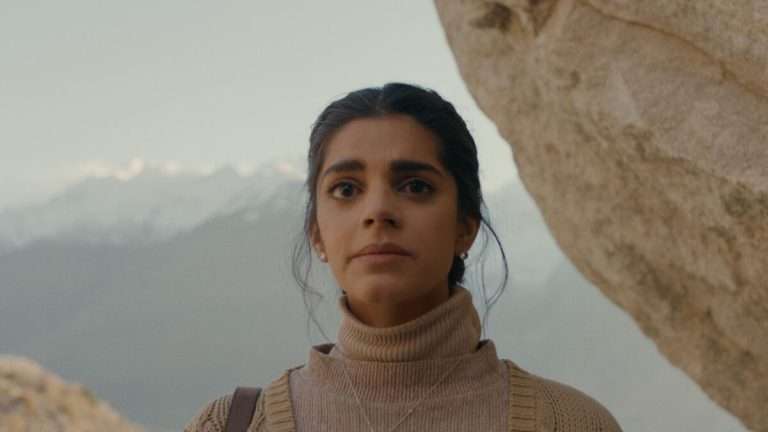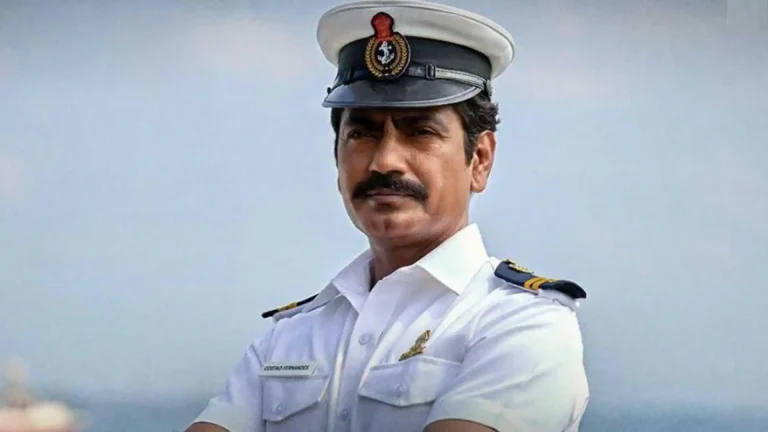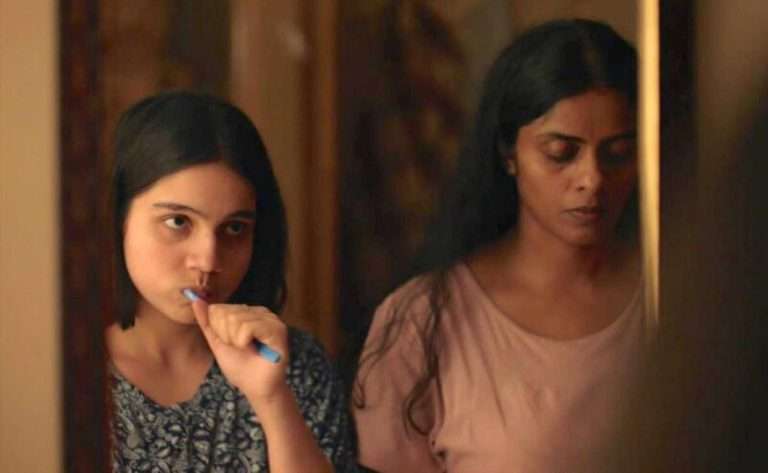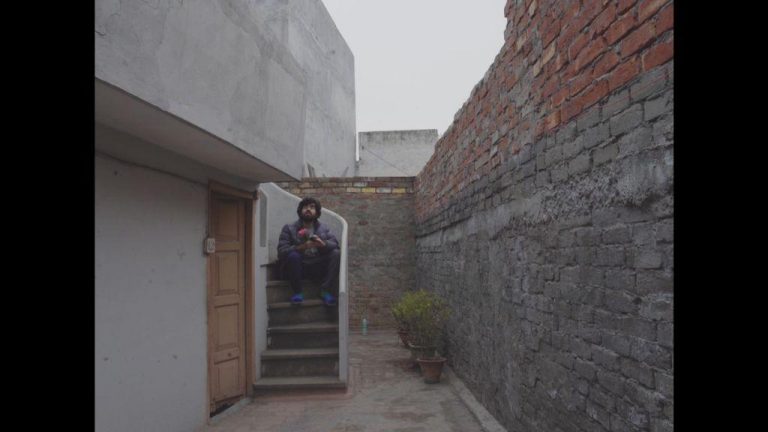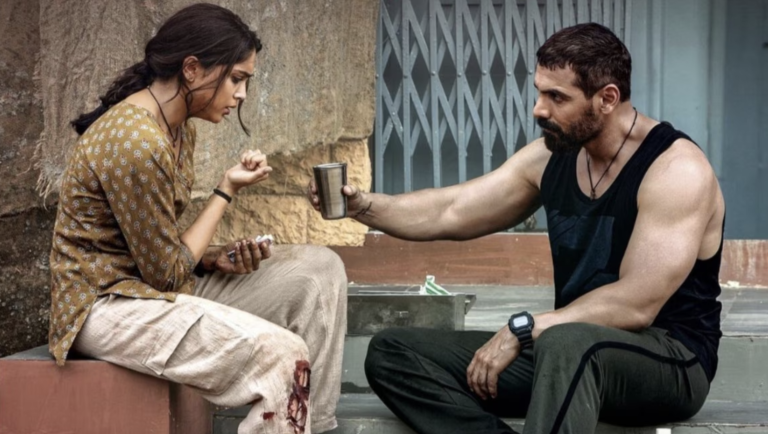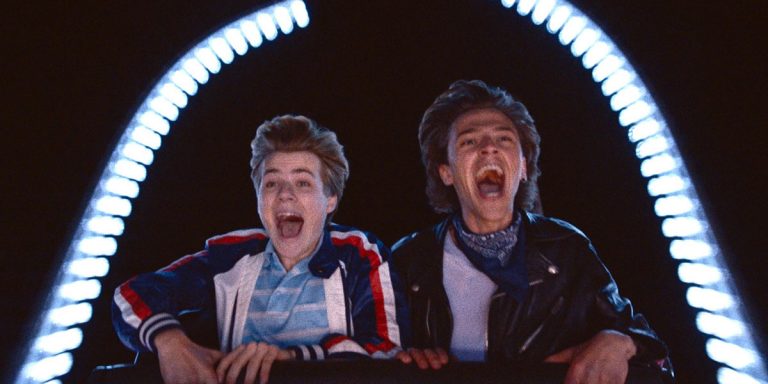Very few indie directors can say that they made an award-winning investigative thriller that keeps you at the edge of your seat and takes you for a ride in Red Hot Wheels! Shukla is undoubtedly one of them. A first-time filmmaker based in Bengaluru, his feature film, “1888,” after making waves on the international festival circuit and winning several awards, is finally available to stream on various platforms in India.
It focuses on a former actress-turned-politician (Neethu Shetty), an LIC agent (Prathap Kumar), and an anonymous individual (Manju Raj), all in pursuit of a bag of cash in the wake of demonetization in India, a prominent socio-cultural and political event that shook the masses to the core. “1888” was shot on a micro-budget with a skeletal crew of first-timers who managed to shoot the film while juggling their full-time jobs. Are you intrigued yet? “1888” is now available for rental and purchase on Apple TV, YouTube, and BookMyShow. It is also available on a pay-per-view basis on Movie Saints. You can also stream it for free on VDOJar.
We at High on Films caught up with Sourabh for a candid conversation about all things cinema, the Kannada film industry, filmmaking and its ethics, and more. You can read all about it below:
Ahendrila: I just finished watching your film this morning, and I’m a little mind-boggled by the second half, which is fantastic. Congratulations on your first feature film. It’s a great amalgamation of a lot of different cinematic elements. But I’m very curious about the vision that went into your idea of 1888? What is the one thing that you thought was where it all began?
Sourabh Shukla: I’ll be honest here because I don’t believe in trying to gloss things over. Being an indie filmmaker, my primary intention was to just go and try something. This started as a short film project. So, what happened is we just wanted to make a film. Basically, my friends and I are not from the film industry. We have no background at all – no one in the family worked in the industry and never assisted anyone. Nothing. Absolutely nothing. But I’ve always watched movies, loved movies, and been a part of film societies. So, what happened is we were dabbling with multiple ideas, right? Like, should we make a docu-drama? Should we make a horror film? A lot of things.
When demonetization happened, there were a lot of interesting stories that we started learning from some people. Like, people were talking about the current market commission for exchanging money, how someone didn’t know what to do with their old money and they just burned some cash. Things like that, right? We were intrigued and were like, let’s see if there’s a good director in this building (laughs).
We wanted to make a short 40-minute film. But then, you know, with more research…the idea was, I personally believe that if I have to show something authentically, within the mainstream framework and if I get my facts right, even if it’s something very few people – like maybe just ten people in India – know about, I still try to get it authentically right. So, doing more and more research, I started learning more intriguing stories and a lot of things that were not out there in the public.
At that time, the mood was such that there were more political debates happening. Like, was it a good thing? Should it have been better? Should they have announced it before? Personally, that was not exciting me much, but it was more of these underlying things – the how it happened, what was happening behind the scenes, etc – that captured my attention.
So, that’s how, you know, it graduated to become a feature-length film. My honest idea was to just go make a film, learn from it, get my hands dirty, go with an open mind, not be tied to things like there is a grammar that you have to follow, there is a script that you have to follow, etc. The idea was to experiment and learn with no pressure, right? No burden, nothing, so long as you can afford to do whatever you want to.
There are people who say, hey, your first time was very slow, it went differently, and I was like, it’s okay. I set up the second half how I did; I wanted the first half to be as I do it. It worked in parts, it didn’t work in pieces. The idea to experiment and learn is so central to the entire film, right?
Ahendrila: Absolutely. I was trying to think about the screenplay, and I thought it would be better if I just asked you instead: Why make a film on money and the need and the desire for money in a capitalistic world? Isn’t it a done-to-death topic already?
Sourabh Shukla: Money is central to our lives, right? I mean, I’ll digress a little bit. Even today, you know, coming to the filmmaking part, like, say the marketing part or anything, everywhere money is central. I was talking to a friend and he was like, ‘hey, you know what, to get your movie on this (anonymous) platform, you need to pay this much.’ So, what’s happening is, and even, you know, in all kinds of conversation, money is central, even if we don’t realize it.
I might say, ‘Hey, I’m a guy who believes in social success,’ and maybe I do this and that. But, when it comes to the real world, where certain things happen, money helps them settle. It is central to our lives. Without it, we just can’t progress in life. So, that’s why it (read: money) was a very interesting topic, and it was bothering me because certain things don’t make sense without it, right? It’s only logical. Why would one want something which is of no use? I don’t know. What is the thought process for wanting something that is not useful?
So, money and the thought process around it got me intrigued. How can some people treat money so casually? Is it because they come from a certain social background? But I’ve seen guys who are not from that luxurious or privileged background, and they’re still very casual about it. I mean, they’re not, in a conventional sense, running behind money. They still look at it as something needed for transactions. So, a lot of these conversations came up in our discussions.
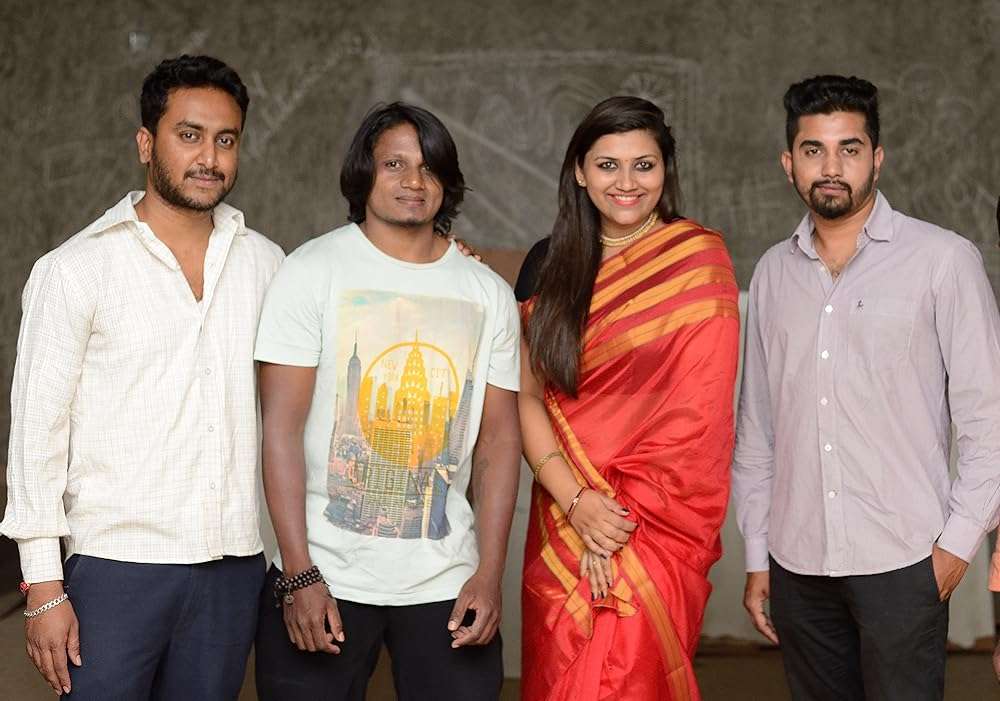
I think, for even the government, right? When they were justifying saying that they wanted to do it for reducing the black money, I didn’t fully get it. There are many more things, many more layers and aspects behind this which people don’t usually talk about. As an aftermath, I thought it’ll definitely be good to explore and understand this relationship with money.
Ahendrila: Right. My next question was, considering all the socio-cultural and political events that have taken place in the past seven years, why go back to demonetization? But that, I think, is answered now, so we move on to the next one – why call the film 1888? Now I know why (laughs) because I have watched the film, but is there any other significance to it?
Sourabh Shukla: No, no, no, not much of a depth, no metaphor, no symbolism, nothing there. In a small way, I can say, what was happening is that car, right? It, for me, is like a character in the movie and was also our caravan. Moreover, it was our production vehicle, so everything was happening in that. It was there constantly in front of us.
And then, what also happened is there was a story which was narrated to me when I was doing my research by a cop (it is there in a movie also, but I didn’t want to re-read that, so I’ll just tell about the incident with the cop) where he cracked the case because he was just going through some files when he saw a number – it was a car number – and then it struck him then that he could catch a criminal because of that. That’s when it felt like this could be…we’d been thinking about it in a lot of ways, but this was there in front of us; all these stories are connected to it.
Ahendrila: That’s interesting. Now, since you are a self-made filmmaker, could you tell me a little bit about the journey you took into filmmaking itself and the inspirations along the way that drove you to make your first film?
Sourabh Shukla: I think and I personally feel I was born with this love for cinema because maybe when I’ve watched a lot of movies since I was 5-6 years old, and all kinds of films from typical Bollywood masalas like Amar Akbar Anthony to Satyajit Ray’s Gopi Gyne Bagha Byne, Pather Panchali, Ritwik Ghatak’s works, Ketan Mehta’s Mirch Masala, and European film, like, 400 Blows, so each one was taking me through a different experience.
What was happening was, I think, borrowing a line from Tarantino. I never went to film school, but I definitely went to film school because I was watching films. For many films, I always thought, ‘Would I have done this in a different way?’ ‘Was there a necessity to have background music here?’, ‘Could this guy just not have spoken any words?’, ‘Could the editing have been different?’ or ‘Why was the coloring not like this?’ So, there was always a movie running in my head. That’s how I think I am. I’m a guy who goes with my heart and goes with the flow.
The days when there used to be a handycam, me and a friend of mine, we just picked up one, went out on a drive to a dhaba and we were like, ‘hey, let’s just shoot something, and we’ll just try to edit it.’ And we shot some kind of a spooky movie, just two to three of us, in a car, and then we edited it and sent it. That’s when YouTube also wasn’t there, right?
We were really young college guys, and I might be talking about the year 2006 here, so we just sent it to a film festival. It was selected! We didn’t even know it was available on YouTube. Someone discovered it after years for us; they said, ‘I didn’t know, you guys did this! You never even told us.’ We just did it for the heck of it, we wanted to have fun, so, that has always been there.
I did attend a few certificate courses, like film acquisition and film direction courses, but I kind of bunked them. I was not able to concentrate and relate. It started feeling very structured and… I feel, filmmaking is a very personal thing. It has to come from within. It is the way you see it, so telling that this is how you have to do it, you are putting in boundaries or have templates is something I personally do not agree with.
So, that’s why my filmmaking journey is mainly random. I just jot down my thoughts, and when I go to the spot and see that some dialogue feels inorganic because it doesn’t set the mood, we just change it on the spot and take inputs…so you just go with the flow. I’ve just taken a camera, shot using mobile phones…whatever, and it’s for my own learning and my own passion.
Ahendrila: So, if you were given to choose between making a documentary and a feature film, what would always be your first preference and why?
Sourabh Shukla: To be honest, shooting a documentary is really tough because…a documentary is a whole different ball game. I shot a documentary earlier, also. Documentaries I find a little more challenging than usual, and my comfort zone is feature films, maybe, because then I have a lot of stories to tell that fall under that…purview. I would say that’s probably the first step, but I love to talk to people. Only documentaries have a good amount of difficulties involved in them.
Ahendrila: The Kannada film industry has been making a significant impact on Indian cinema, as now more and more people know and watch the films that are being produced in this industry, especially since the pandemic years and with the release of Kantara, KFG, etc. How do you think you, as a new filmmaker, can contribute to the Kannada cinema’s impact and identity?
Sourabh Shukla: I think what’s happening in the Kannada film industry…me and other filmmakers, we should be able to honestly tell stories that we want to tell, and if the industry is also supporting, and if these stories are coming out, people will naturally respect and watch more of this content and that will also motivate us to continue doing whatever we are doing.
Otherwise, I don’t know how many of you are aware because this year has been like a very dry period in the Kannada film industry. There have been no hits, no names. So, fundamental questions are coming up, like ‘hey, you know, probably we should stick to making XYZ kind of films. Probably we should just do this.’ In fact, to the extent that only 1, 2, or 3 of these actors are saleable, and people work only with them or go ahead with only one music director’s work.
So, I mean, this is very funny. Do you know what the Kannada film industry people almost decided because of this dry period? They were like, if the industry is going through a bad phase, let’s do a pooja and havan, some kind of a thing to uplift the industry. I’m not against that, but I mean, that has its own place, right? But then, these are the discussions we are having, whereas we should be talking about things like ‘how do we tell our stories with the conviction that we have,’ even if it means rubbing, say, the government or the censor board around. Can we tiptoe that fine line and things like that? Or can we just look beyond?
There was a point in time when Kannada films were all about rowdyism. Can we, even if you’re telling a love story or a story about rowdyism, can it be different from what it has been? So, things like that, like it’s not limiting our stories, right? It’s just simple for people to identify with. There are different topologies within Karnataka, so many people feel the northern part of Karnataka is often ignored. There are hardly any stories from that region.
Can we even…why are people not telling that? Is it because they feel that it will not work? Things like that. That’s why I feel, as a filmmaker, if I’m somewhere, what work I’m trying, maybe the second, third, or first work, if it somewhere connects and people like it, then that will naturally bring in more motivation, more push for people to experiment and tell stories their own way. That’s what I feel.
Ahendrila: What is that one ethic that you think, as a filmmaker, you would like to stick within your entire filmmaking journey? Of course, you would have one now, and that may change over the next couple of years (laughs), but what is something that’s going non-negotiable for you as an ethic?
Sourabh Shukla: My honesty to the art form. Sincerity. I mean, I don’t believe in… Sometimes when I see something, things look very contrived. That I feel should not be. Because then that’s a whole different… It might look good, and it might look appealing to certain people, but if you as a person are doing it as a gimmick or doing it just to please someone else, compromising on your fundamentals, that doesn’t sit with me. So, even if there’s no depth to something, trying to rationalize and bring depth out of it would be some kind of cheating, I feel.
For me, it should be honesty and sincerity to my craft. It could be a commercial potboiler. I’m having an item song, but I’ll be honest and upfront. This is here for a certain reason, and this is why it is. I’m doing it just for me. But I think they should know why I’m doing it, and it should be there. People should be able to see that this is why it is good because, honestly, there are transparency issues. That’s what I mean.
Ahendrila: Right. Okay. So, you just talked about a documentary that you’re shooting right now. Could you tell us a little more about it? What is it that we are expecting to see from you after this project?
Sourabh Shukla: This project came from a friend who is based in Kolkata. He was in touch with a religious scholar whose name is Sthaneshwar Timalsina and who is based in the US. He talks about the authentic Tantra and not what’s peddled abroad that just looks at it as Sex, black magic, etc.
And he has written some original, sorry, original, what we call, writings, slokas, right, verses. He wanted to convert them to reach a wider audience, the essence, the true meaning of Tantra, to reach a wider audience, convert it to a musical format, maybe Indian classical, Carnatic classical, or something that is more accessible, widely reachable.
So, that whole journey he wanted me to document. And there has been a lot of ups and downs, like he doesn’t have an understanding of music, but he just sits in a Kali temple, and he gets this inspiration, he just writes. And the next moment, he cannot write it. But then, now, they are being converted. Again, there was a person who was involved, a music director who came in between, who kind of leased these guys, took a lot of money, and didn’t complete it. So, we wanted to document the whole journey till it reaches that stage form, basically from handwritten notes to the final notes, which come up as an album.
Ahendrila: That’s very interesting! Best of luck with this one. Can you tell me one genre of movies that you would love to make when you think you are a little further ahead in your career when you think it’s dream project time?
Sourabh Shukla: There are many. This is a tough thing, but I would want to…genres like sports drama, thriller, horror, etc. But I don’t know what genre to call this, where we are looking at the shades of a person; there are multiple layers that we have, so it’s not just black and white. You know, for example, there’s this movie about the legendary filmmaker Saeed Akhtar Mirza. It’s called Arvind Desai ki Ajeeb Dastaan. It was funded by NFDC. He’s this guy who’s got good meaning and good intentions, but it’s not translating it into actions. He wants to, but he’s not able to do anything. You know there are people like that, right? How do you show that in cinema?
Normally, it’s very easy to show someone as black, even grey. What is shown as grey today is kind of implemented; it is like, show this, this, this, and then you’re showing him as a grey person. But then these layers, right, where you just cannot understand what is running in a person’s mind, but he’s there and showing that on screen, getting a person to act out a storyline and something which is very real, which a lot of us do, where we are just, we are just numb to…there’s a lot happening.
Basically, the journey of a person’s – you know, like, even this question you rightly mentioned: the way I’m thinking right now; five years down the line, what journey my personality has undergone, the shades that have been added and the shades which I’ve shed, I think showing that. I don’t know what it is…it’s a human emotion drama? Yeah, that kind of a genre. I find it very challenging, making it interesting for people to watch, at least my audience. That is something I would definitely like.
Ahendrila: Okay, we’ll come to the last question. Can you recommend five films like 1888 for High On Films readers and members to watch to better understand the movie or as a complementary piece to the movie?
Sourabh Shukla: I don’t know if any movie has been…because I didn’t have any references, to be honest, and there’s no inspiration as such, but one thing that comes to the top of my mind is Kahaani. The reason is that the depiction of Nawazuddin’s character, you know, what he plays, was apt. I’ve never seen many movies showing an I.B. guy so accurately, and the reason why I’m telling that is because 1888 also has those shades. And there was this German movie, Lives of Others, where this guy would tap into the telephone conversations during World War II.
That would be one, maybe. And this one, I don’t know if this is under the 1888 genre, Suspect X? It’s a Japanese film. I think the novel is also Japanese. This is not related to 1888, but the way the story progresses…again none of these movies are connected to 1888. Still, I think once you watch these movies, you will be able to appreciate better some of the experiments that we have done. Then, Manorama Six Feet Under, and there’s this Kannada movie called Gultoo.




